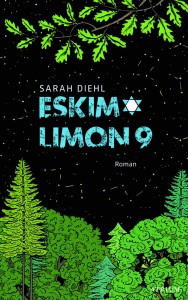When German friends of mine choose to move from Darmstadt, in Hesse, into the surrounding countryside, I shake my head in disbelief. That an Israeli family would leave Tel Aviv not, as many Israelis do, to move to Berlin (see the German-language blog post offering ten tips for Israelis in Berlin), but rather to the tiny Hessian town of Niederbrechen, seems audacious, if not outright absurd. This scenario, however, is the starting point of Sarah Diehl’s debut novel Eskimo Limon 9. The novel depicts a “very particular kind of culture clash,” as the book’s flap announces.
Some of the characters are Israelis, and they have little interest in discussing Germany’s past or the history of European Jews.
“The only thing in the Jewish Museum that will remind me of home will probably be the metal detector you have to go through at the entrance.”
The novel’s Israeli father Chen wishes Germans “would associate us with Eskimo Limon instead of six million dead.” The title of the book refers to a film series of the same name, which aired in Germany in the 1980s as Eis am Stil (Popsicle), “one of the few Israeli pop culture phenomena […] familiar to German audiences.” Many assume that the series is Italian, which—as the author of the novel argues—shows how selective Germans’ perception of Israel can be, and how limited their idea of Jewishness often is.
Other characters are natives of Niederbrechen. → continue reading
